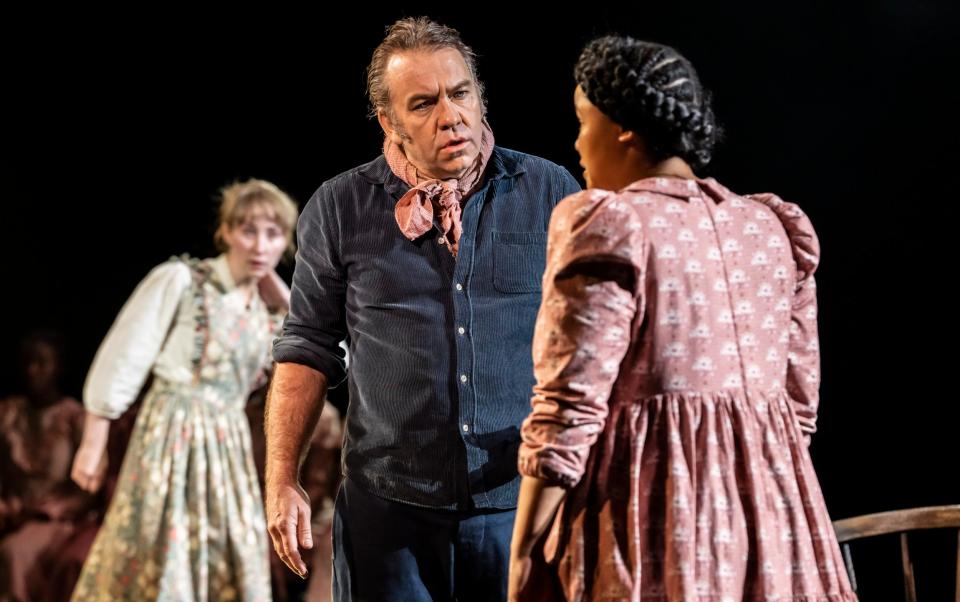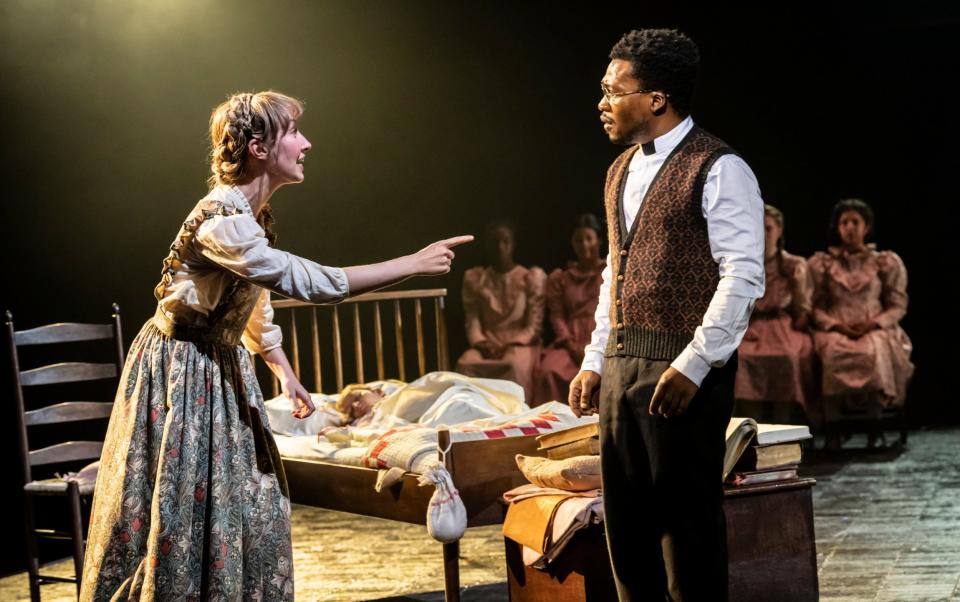The Crucible, National Theatre review: Gripping revival of Arthur Miller’s masterpiece speaks to us with urgent force

First staged in New York in 1953, The Crucible was – as is often noted – Arthur Miller’s response to the paranoia that swept post-war US politics, when Communists or those suspected of being so were treated as little less than devils in need of exorcism.
In the juvenile-led spasm of denunciation and execution that seized Salem, Massachusetts in 1692-3, which saw hundreds accused of witchcraft and many townsfolk sent to the gallows, Miller found a chilling correlative – and quasi-allegory – for the career-wrecking zeal of Republican senator Joseph McCarthy and his kind.
Still, even at the London premiere of the masterpiece in 1956, the critic Kenneth Tynan observed: “We can now judge [it] not as an anti-McCarthyite tract but as a devouring study in mass hysteria”. It moves with the times, and it takes no specialist in ‘cancel culture’ to see why the play might speak with urgent force today.
The key thing for any revival, though, is that it doesn’t feel too much like a lecture in disguise. This, Lyndsey Turner’s gripping revival at the National magnificently manages to do. It’s not as if she reinvents the piece, it’s more that she refreshes it, honouring the specificity but banishing clutter and creating an understated yet awe-inspiring monumentalism. Before each scene, designer Es Devlin wraps the action behind a curtain of lit falling water, the beauty of that biblical torrent offset by bleak surrounding darkness.

The suffocatingly close-knit community, bound by puritanical belief, is denoted in deft strokes, an added establishing scene showing the town worshipping and joining in hymn, hands rising in unisoned fealty to God above. A slap, delivered by the Reverend, lands on the face of a back-row giggler: Erin Doherty’s mischief-making Abigail Williams and the fulcrum of the drama because of her illicit romance with married farmer John Proctor.
In that casually inflicted hurt, Turner encapsulates the innate violence of this prim world, bringing home that what follows is a release of pent-up vivacity as well as a warped vengeance.
Power suddenly lies with the girls, who are forbidding in their coordinated self-containment and transfixing in their theatrical self-abandonment, at once possessed by and cowering from imagined spirits.
Doherty, confirming herself as one of our finest young actresses (as if her portrayal of Princess Anne in The Crown wasn’t proof enough), is perfect as the ring-leader, combining shrewd calculation with wayward impulse. She darts gleeful malevolent glances over at one target, Rachelle Diedericks’ recanting Mary Warren, even as she grimly convulses.

The evening builds an accumulating and harrowing sense of crushing internal logic and group-think; the credulity of the visiting authority figures combines with the bewilderment of those accused and carted off to create an engulfing atmosphere of total helplessness.
Brendan Cowell is initially rugged and still, finally wretched, broken yet dignified as Proctor, finding the means to refuse to march in step. Alongside him, over a fleet three hours, are other performances of exemplary detail: Eileen Walsh his quietly wounded wife, Matthew Marsh the insufferably arrogant judge, and Karl Johnson gently unforgettable as old farmer Giles, whose misgivings about his third wife reading books set in motion an act of domestic devastation.
The National at its best.
Until Nov 5. Tickets: 020 3989 5455; nationaltheatre.org.uk

 Yahoo Movies
Yahoo Movies 